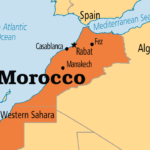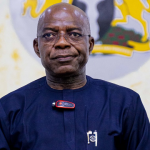As preparations build up for the 2027 general elections, Nigeria’s National Assembly is proposing a major shift in the electoral timetable, recommending that presidential and gubernatorial elections be conducted in November 2026—months earlier than the traditional February or March schedule.
The proposal is contained in the draft of proposed amendments to the 2022 Electoral Act, unveiled during a public hearing held on Monday by the Joint Committee on Electoral Matters of the Senate and the House of Representatives.
According to the draft, elections into the offices of President and State Governors are to be held “not later than 185 days before the expiration of the term of office of the last holder of the office.” This means the elections would take place in November 2026, given that the current tenure of office holders expires on May 29, 2027, and 185 days prior falls within late November.
The same rule is proposed for elections into the National Assembly and State Houses of Assembly, with Section 4(5) of the draft stating that such elections must also occur not later than 185 days before the respective houses stand dissolved.
To facilitate these changes, the joint committee is also seeking constitutional amendments. The draft explains: “Section 28 now Section 27 (5 – 7) was introduced due to the amendments to Sections 76, 116, 132, and 178 of the Constitution, which seeks to remove the determination of election timeline from the Constitution to the Electoral Act.”
Chairman of the House Committee on Electoral Matters, Hon. Adebayo Balogun, said the proposed timeline aims to allow for the full resolution of all electoral litigations before elected officials are sworn in.
“To ensure that all manner of election litigations are dispensed with before the swearing in of winners, we are proposing amendments that will reduce the 180 days allotted to tribunal judgments to 90 days, and the 90 days given to appellate courts to 60 days. This will ensure that all judicial processes are concluded within the 185-day window,” he explained.
Among other major proposals is the introduction of early voting. According to Section (2) of the draft bill, “There shall be a date set aside for early voting not later than 14 days to the day of the election.” Beneficiaries of early voting would include security personnel, electoral commission staff, accredited journalists, domestic observers, and other ad hoc workers involved in election day duties.
The committee is also pushing for mandatory electronic transmission of election results. Section 60(5) of the proposed amendment states: “The Presiding Officer shall transmit the results including total number of accredited voters to the next level of collation both electronically and manually.”
To reinforce compliance, the draft criminalises failure by presiding or collation officers to distribute stamped ballot papers and result sheets, prescribing a penalty of one-year imprisonment, a fine of N1 million, or both.
Other recommendations include making the use of Permanent Voter Cards (PVCs) non-compulsory, suggesting potential alternatives for voter identification.
All stakeholders who participated in the public hearing, including the Independent National Electoral Commission (INEC) represented by Professor Abdullahi Zuru, expressed support for the committee’s proposals, signalling consensus on the need for comprehensive electoral reform ahead of the 2027 polls.










